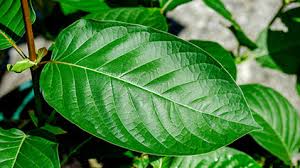
Breaking News
 Sunday FULL SHOW: Newly Released & Verified Epstein Files Confirm Globalists Engaged...
Sunday FULL SHOW: Newly Released & Verified Epstein Files Confirm Globalists Engaged...
 Fans Bash Bad Bunny's 'Boring' Super Bowl Halftime Show, Slam Spanish Language Performan
Fans Bash Bad Bunny's 'Boring' Super Bowl Halftime Show, Slam Spanish Language Performan
 Trump Admin Refuses To Comply With Immigration Court Order
Trump Admin Refuses To Comply With Immigration Court Order
 U.S. Government Takes Control of $400M in Bitcoin, Assets Tied to Helix Mixer
U.S. Government Takes Control of $400M in Bitcoin, Assets Tied to Helix Mixer
Top Tech News
 SpaceX Authorized to Increase High Speed Internet Download Speeds 5X Through 2026
SpaceX Authorized to Increase High Speed Internet Download Speeds 5X Through 2026
 Space AI is the Key to the Technological Singularity
Space AI is the Key to the Technological Singularity
 Velocitor X-1 eVTOL could be beating the traffic in just a year
Velocitor X-1 eVTOL could be beating the traffic in just a year
 Starlink smasher? China claims world's best high-powered microwave weapon
Starlink smasher? China claims world's best high-powered microwave weapon
 Wood scraps turn 'useless' desert sand into concrete
Wood scraps turn 'useless' desert sand into concrete
 Let's Do a Detailed Review of Zorin -- Is This Good for Ex-Windows Users?
Let's Do a Detailed Review of Zorin -- Is This Good for Ex-Windows Users?
 The World's First Sodium-Ion Battery EV Is A Winter Range Monster
The World's First Sodium-Ion Battery EV Is A Winter Range Monster
 China's CATL 5C Battery Breakthrough will Make Most Combustion Engine Vehicles OBSOLETE
China's CATL 5C Battery Breakthrough will Make Most Combustion Engine Vehicles OBSOLETE
 Study Shows Vaporizing E-Waste Makes it Easy to Recover Precious Metals at 13-Times Lower Costs
Study Shows Vaporizing E-Waste Makes it Easy to Recover Precious Metals at 13-Times Lower Costs
Is Kratom a Performance Enhancer or a Lethal Opioid?

Deep in the heart of the Adirondacks, the unexpected death of a small-town police sergeant has added fuel to a nationwide controversy over an herbal supplement.
On August 6, 2017, police cruisers raced down blacktopped country roads in Tupper Lake, New York, to Haymeadow Road, their sirens piercing the tranquil summer day. A medical emergency had been called in from just over the village line, and the address was immediately recognizable to anyone in local law enforcement: it was the home of an off-duty sergeant and his girlfriend. That day, nearly every officer in the Village of Tupper Lake police department, which employs 11, had been at the station putting together a search warrant. Soon, close to a dozen officers—village police, state troopers, and even an officer from the environmental-conservation police—swarmed the home and began working on their unresponsive 27-year-old colleague, sergeant Matthew Dana. Despite their efforts, no one could revive him and he was soon pronounced dead. They were all left wondering: What exactly had gone wrong?

 Smart dust technology...
Smart dust technology...

